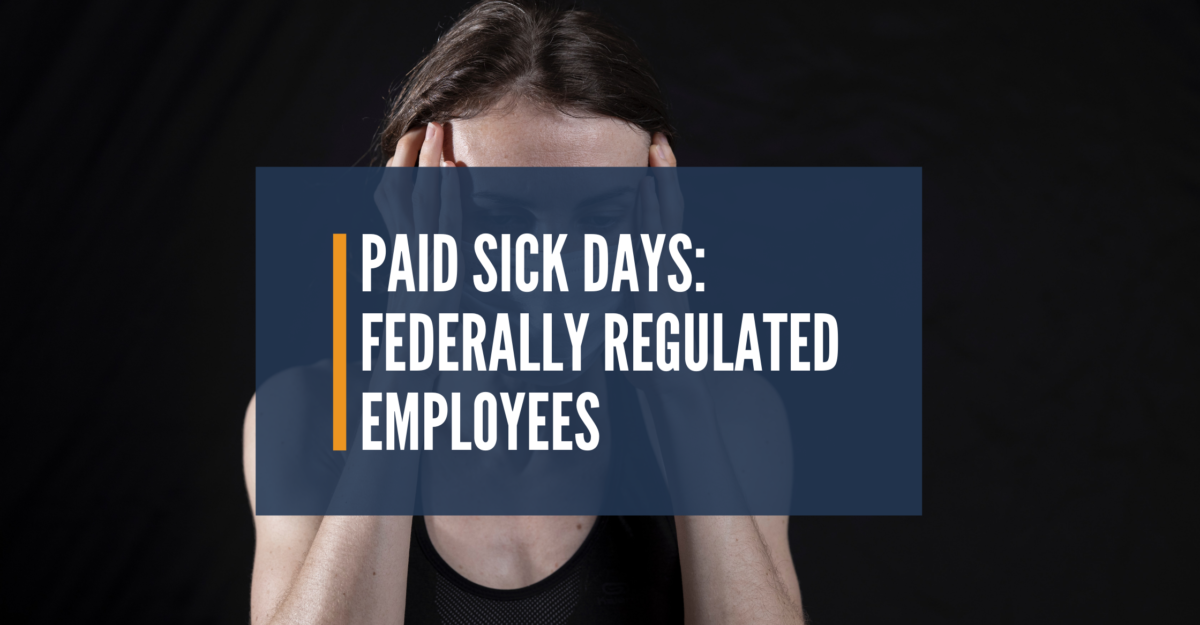10 Paid Sick Days in Canada: What Federally Regulated Employees Need to Know

Federally regulated employees in Canada get up to 10 paid sick days each year under the Canada Labour Code. These days are officially called paid medical leave. The rules apply to workers in banking, telecommunications, trucking, rail, air transportation, postal services, and other federally regulated industries.
Below is a simple breakdown of how paid medical leave works, who qualifies, how days accumulate, and what happens when you need time off for illness or injury.
What Are the 10 Paid Sick Days in Canada?
The federal government introduced a sick leave policy requiring employers to provide up to 10 paid medical leave days per year. Employees earn these days gradually and can use them for illness, injury, medical appointments, or urgent health needs.
Key facts:
- You must complete 30 days of continuous employment before earning your first paid sick day.
- Sick days accumulate at one day per month, up to a maximum of 10 days.
- Unused days carry over to the following year, up to the 10-day limit.
- Employers must pay your regular wages for approved medical leave.
Who Qualifies for Paid Medical Leave?
Paid sick days apply only to people covered by the Canada Labour Code, not provincial employment standards.
You’re federally regulated if you work in industries such as:
- Banking
- Interprovincial trucking
- Railways
- Airlines and airports
- Telecommunications (e.g., Bell, Rogers)
- Marine and ports
- Broadcasting
- Postal and courier services
How Do Paid Sick Days Accumulate?
Here’s how the system works under the Canada Labour Code:
- After 30 days employed → you earn 1 paid sick day
- After 60 days → 2 days
- You continue earning 1 day per month
- Once you reach 10 days, you stop accumulating until the next year
- Unused days roll over, but your total balance cannot exceed 10
What Can You Use Paid Medical Leave For?
Employees can take paid medical leave for:
- Illness or injury
- Medical appointments
- Quarantine
- Preventive care
- Any physical or mental health condition requiring time away from work
Employers can ask for medical documentation, but only in specific situations (e.g., absences of 5+ days or repeated short-term absences).
Do You Get Paid for Medical Leave in Canada?
Yes — if you qualify under the Canada Labour Code, your employer must pay you your regular wages for each paid sick day you use.
If you run out of paid days, you may still take unpaid medical leave, but the employer does not have to pay for that time.
Can Employers Refuse Paid Sick Days?
Employers must:
- Provide paid medical leave
- Track your accumulated days
- Pay you correctly
- Not penalize or retaliate against you for using sick leave
What If You Need More Than 10 Sick Days?
You may have other options under federal law, including:
- Unpaid medical leave
- Disability benefits (short-term disability or long-term disability)
- Workplace accommodation under human rights law
What Employees Should Do If Their Sick Days Are Denied
If your employer won’t honour your medical leave rights:
- Document the request and response
- Keep doctor’s notes or records
- Track pay you did or didn’t receive
- Contact an employment lawyer immediately
Speak to an Employment Lawyer About Your Sick Leave Rights
If you’re a non-unionized, federally regulated employee and your employer is refusing to provide paid medical leave, delaying approval, or penalizing you for using your sick days, our employment lawyers can help.
Samfiru Tumarkin LLP is Canada’s leading employment law firm for workers in Ontario, Alberta, and BC, with more than 50,000 clients helped and millions recovered.




